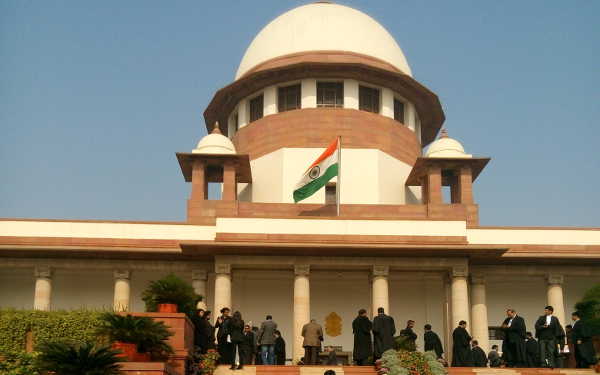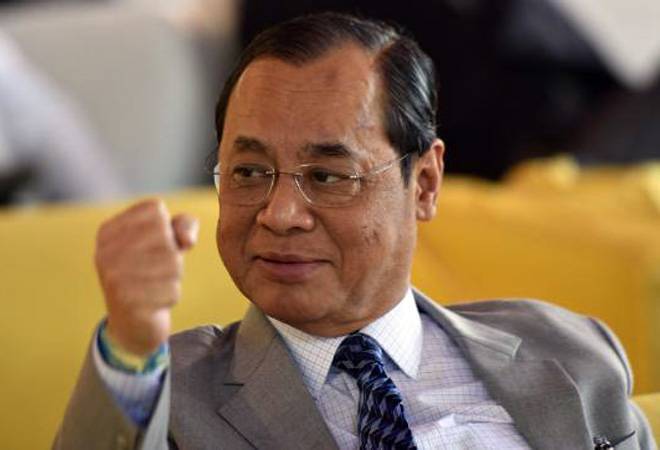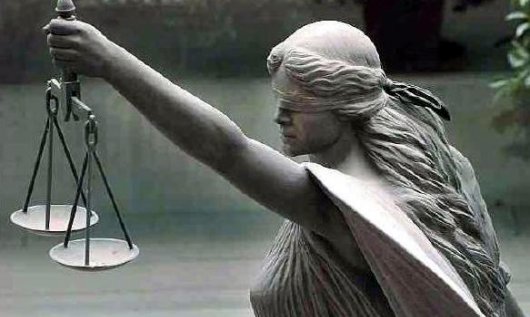
A five judge Supreme Court bench has given a decisive verdict on Arunachal Pradesh that Government of Nabam Tuki should be restored. The ruling also points several deficiencies on the part of the Governor Jyoti Prasad Rajkhowa . The decision also lays down norms to be followed by the constitutional position holder, the Governor.
It is a landmark judgment as it highlights two major points which has consistently plagued the body politic of India. First relates to the political game which is played by the political parties holding power in the Union. It is not a new phenomenon that political party in centre has attempted to dislodge the opposite parties duly elected government in the state. During Mrs. Indira Gandhi time it happened and even the moralistic party tag holder Janta Party also did the same. This tendency was although a little stopped after the S R Bommai case decision in March 1994 by the Supreme Court which clearly laid down the bases of the dismissal of a government in the state; in essence all was to be decided at the floor of the house. This principle was although violated by Romesh Bhandari quite soon in UP in February 1998 when he dismissed the government of Kalyan Singh. BJP leader Kalyan Singh , as instructed by the Allahabad High court, won the floor test on February 26, 1998. High Court had put the things in constitutional order.
In the recent time the new way of the removal of the duly elected governments has been adopted when the dissidence in the ruling party is promoted, dissidents are lured to bring the party in power down.
From this tactics emerges the second issue which the decision has highlighted; that relates to the political role of the governors. Governors are appointed by President who acts on the advices tendered by the Council of ministers as mentioned in article 74 of the Indian constitution. Presidential appointments are practically appointments of the political party ruling the union. As a consequence the governors start showing the allegiance to the instructions of the party and their behaviours often cross the constitutional limits. Recently it is observed that governor shows allegiance to the ruling party in the centre, does not follow the constitutional mandate but acts in accordance to the ruling party’s instructions and the principles of constitutional guidance are ignored.
Often they appear as a parity worker. This is visible in several states including Uttaranchal, UP, Delhi and Arunachal Pradesh. This is a very serious negative development in the Indian political system. In this respect role of both national parties viz. BJP and Congress is disappointing. The classic case was of Romesh Bhandari a Congress men, which has been followed by Governor Rajkhowa acting as a BJP men in Arunachal Pradesh. The political activism of governors violate the basic principles of constitution. Governors have become more political than being neutral. This is decline of one prominent institution of the political system.
Along with it another institution which shows decline; is Rajya Sabha where the true spirits of the founding fathers are being belied. The ruling parties select those personalities who have no capacity to elevate the quality of discussion in the house. The nominated members are being selected on the basis of political affiliations. Among these several are of no use to the upper house as they do not participate in the debates and do not carry the knowledge to take part in the deliberation. This development also needs a cure. The politicisation of the post of governor and Rajya Sabha suggest that political parties in the country are focused to serve their interests rather than the wider long term interests of the people and country at large.
The decline of these institutions is compensated by the role of Supreme Court. Its verdict on Arunachal Pradesh establishes again that Indian judiciary is of infinite worth. It is a control mechanism on the unrestrained, illogical and illegal political desires of the political parties. In this context it needs to be stated that Congress and BJP both have attempted to control the judiciary. The issue of NJAC in the recent time is well known. The political parties indirectly want to control the judiciary. The major problem with Indian political parties is to gain power at any cost. The larger interests of the country are placed at stake. The role of BJP is disappointing in this context because it had come into power with a slogan of good governance but the way it has acted against certain institutions as elected governments in the states, Judiciary and misusing the position of Governors for its petty ends is a huge disappointment. Congress was mother of such devaluation. Its politics was always focused on garnering the votes in any way. Its politics of appeasement is a classical example of betraying the provisions of the constitutions. BJP too did not differ. A case in point is Delhi where AAP government is often restrained by the Union government in the smooth functioning. BJP talks about cooperative federalism but in case of Delhi it acts as the non cooperative partner. The right course is that it should help the new government in the capital rather than to serve its narrow ends.
PM Modi is focused towards some good works but he may lose all things because of these negative decisions. The power politics as played in Uttaranchal and Arunachal Pradesh do not generate positive energy among the people towards the party. Small negative actions often destroy the big achievements. BJP should pay heed to it.
Dr. Vivek Kumar Srivastava is Vice Chairman CSSP, Consultant CRIEPS,e [email protected]














































